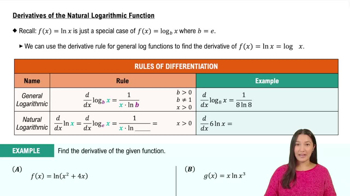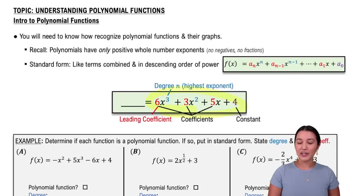Textbook Question
Evaluate each limit.
lim θ→0 (1/(2+sinθ)-1/2)/sin θ
 Verified step by step guidance
Verified step by step guidance Verified video answer for a similar problem:
Verified video answer for a similar problem:



 5:21m
5:21mMaster Finding Limits by Direct Substitution with a bite sized video explanation from Patrick
Start learning